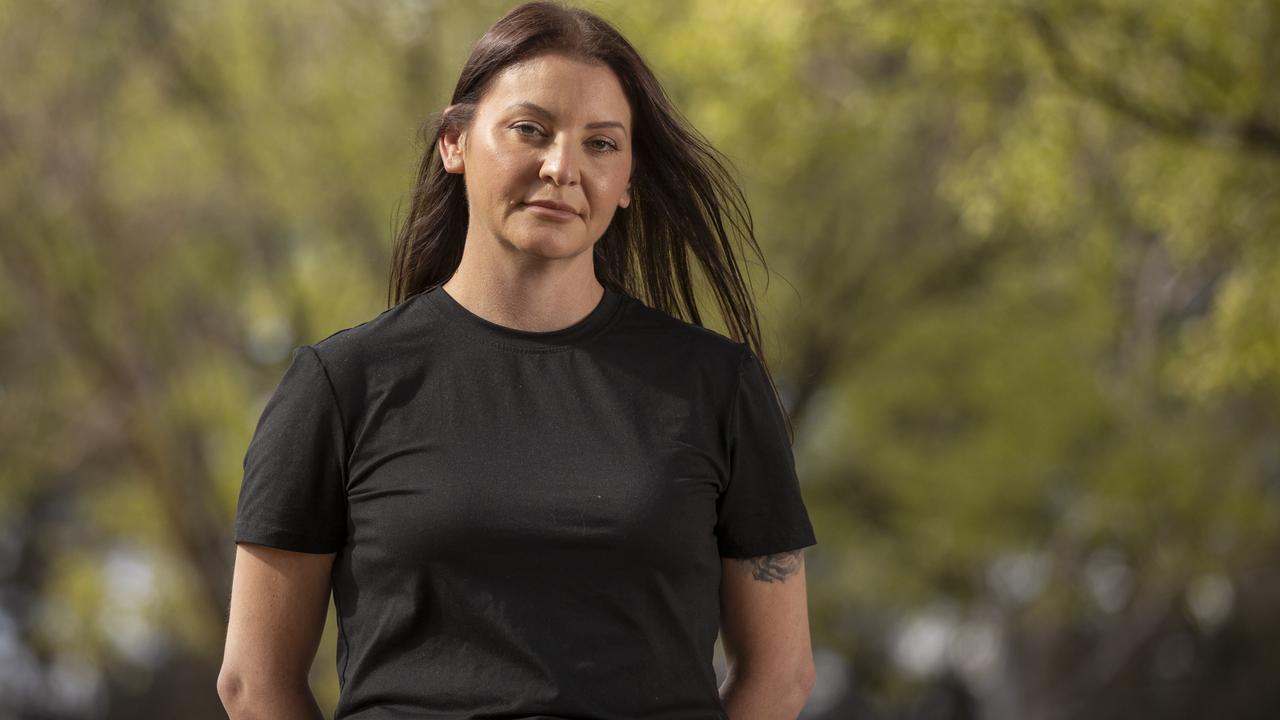Meet the women getting honest about tackling perimenopause
Emily Perry went from a high flying executive to questioning every aspect of her life. It felt like a switch had been flicked.
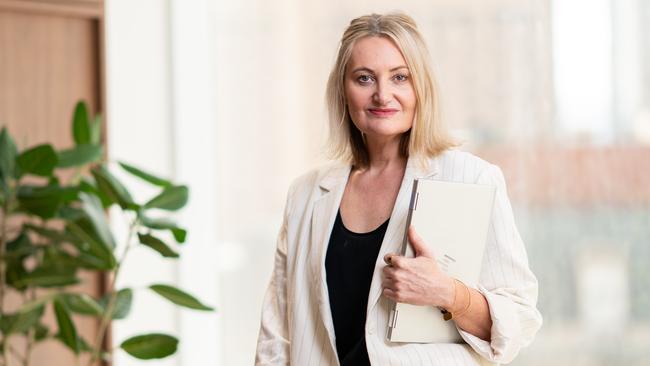
Menopause
Don't miss out on the headlines from Menopause. Followed categories will be added to My News.
Hot flushes and night sweats – they’re the embarrassing, debilitating symptoms instantly linked to menopause. But there’s an even more crippling side effect that’s wreaking untold, life-changing damage on women.
It’s the cluster bomb that suddenly explodes in the lives of its perimenopausal and menopausal victims, causing devastation in their relationships and careers and leaving them desperate for answers.
At 42, Emily Perry was a high-flying executive in a multinational company and a new mum to a one-year-old boy when her “world came crashing down”.
Almost overnight, the super-skilled media manager – whose control of volatile situations had taken her to the top of her profession and all over the world – found herself struggling with her mental health and feeling like she was not keeping up.
Her meticulous recall for names, words, facts and figures suddenly escaped her and she was stalked by a crippling anxiety that threatened to overwhelm every aspect of her life.
It wasn’t obvious to her colleagues, but it affected her self-belief at work.
And at home, her relationship of nine years also started to strain.
“I had no idea what was happening to me, it was scary,” says the now 49-year-old mum-of-two, who moved back to Adelaide with her job in 2017 after living most of her adult life in Melbourne and overseas.
“I couldn’t remember when I’d given people instructions. I was having to really rack my brain and think, ‘Did I actually end up doing that?’ I started really agonising over decisions, being less confident to speak up. I’m a very direct and confident person, normally. I’ve got what can be described as managerial courage, that was starting to erode as well. I couldn’t sleep and I had weight gain.
“I was in a really stressful job, in a senior role so the things that I started experiencing, I just put down to work-life stress. I also had a one-year-old … that must have been what was going on.
“I wasn’t thinking it could be menopause, I’d just had a baby.”

It reached a nadir about seven years ago, as Perry walked on stage to deliver a thank-you address at an industry forum.
The consummate public speaker found herself gripped by anxiety. Her ears were ringing, her heart palpitating and she “felt like I was going to have a heart attack”.
“It was like an out-of-body experience,” she says. “I literally had to wheel myself up on to the stage and read my script. I had the mental capacity and presence to understand what was happening and to manage my way through it.
“I started to think ‘Am I falling apart?’ I walked back to the office and I burst into tears and told my boss that I was having trouble coping.”
A short time later, Perry left her role at the multinational. Believing she was suffering burnout, she took eight weeks to reset herself before launching back into her career. (Today, she is one of chief executive Nick Reade’s right hands at the RAA, where the general manager of government and public policy runs a team of 50 and feels supported, nurtured and fulfilled.)
Desperate for answers, Perry hunted down medical experts. One doctor gave her medication to treat her crushing anxiety. It helped her mental health, but not a roll call of other symptoms, including lesser-known ones like brain fog, tinnitus and itchy skin.
Perry did her own research, which pointed her towards perimenopause, despite her relatively young age. It wasn’t until a female GP finally joined the dots – two years after she first started suffering – and linked all her symptoms to perimenopause that she secured the help she needed with hormone replacement therapy.
Once again, her life suddenly changed and she felt “back to normal”, using a topical gel in amounts that she could adjust on a daily basis. It was the solution she needed – but it wasn’t enough to save her marriage.
“For some people, if you have a great relationship, you resolve those hormone issues and you’re back on track. For me, I dealt with those hormone issues and I still didn’t feel that way. Everybody is different. That was my journey,” says Perry, who lives in the Adelaide foothills with her two children, Jack, eight, and 12-year-old Zoe.

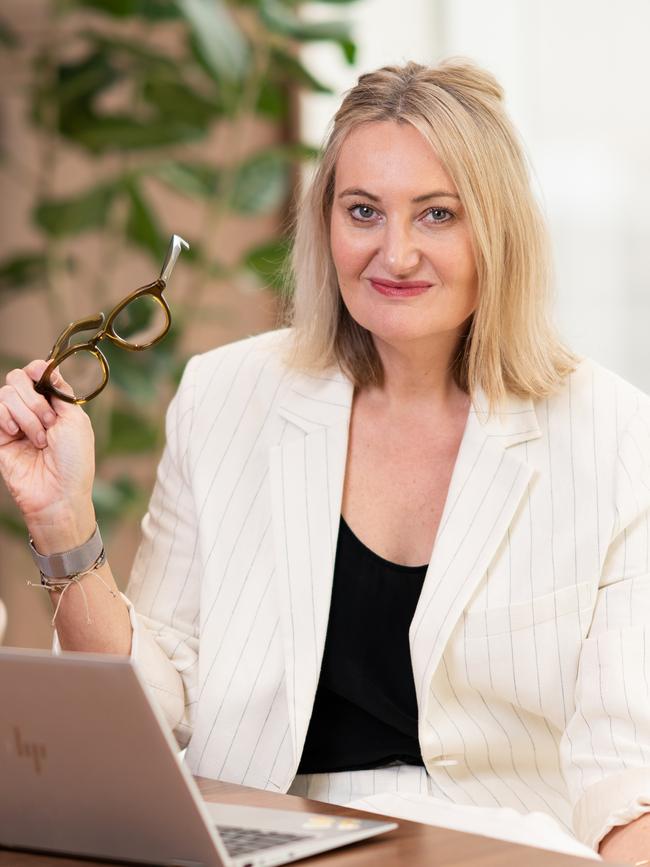
It’s not just established relationships that are being affected by “the change”.
Being young and menopausal makes dating “very, very hard” for Tamira Haywood, who is looking for her “forever person”.
The 40-year-old says managing her own symptoms – raging hot flushes “where I feel like I’m on fire from the inside out”, night sweats, body aches and pains and inexplicable emotional outbursts – is tough. But coping with them in a new relationship is even tougher.
“That was one of the reasons my last relationship didn’t work, I was too emotionally unstable for him. I cry at the drop of a hat,” says the administration worker for a disability support provider in Victor Harbor.
“It is a struggle for me going through menopause and trying to date. I’m ready to settle down, I want someone that’s on the same page as me but then I want them to understand what I’m going through and it makes it really hard.”
At 36, Haywood had a hysterectomy to manage the crippling symptoms of endometriosis and adenomyosis, conditions that affect the lining of her uterus and cause pain and excessive menstrual bleeding.
It meant she bypassed years of perimenopause and was thrust straight into menopause – the phase of life when a woman becomes infertile – 15 years before the average age of 51. Virtually overnight, the mum-of-one started suffering hot flushes and hormone-ravaged emotions.
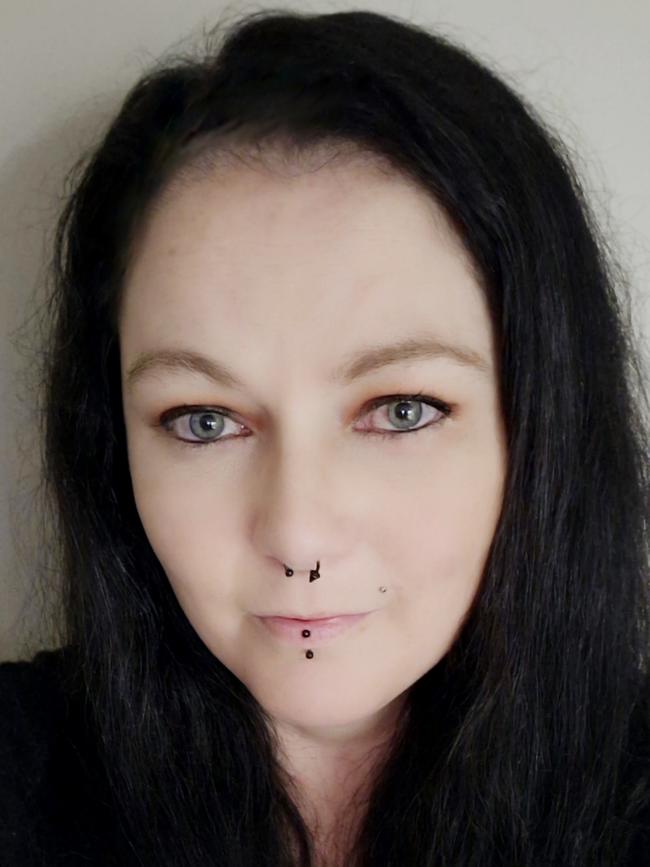
“Before my surgery, I wasn’t emotional at all, now I get emotional at anything,” says Haywood, who has a 21-year-old son. “Now I have to sleep with an air conditioner on every night even during winter because I just overheat.”
The symptoms and the fact that Haywood can no longer have children at an age when many men want to start a family have wreaked havoc on potential relationships.
She chats to men on Tinder, Bumble and her favourite, Turn Up, an app designed to match-make music lovers, and says she is always “very open” about her phase of life.
“I tell them my symptoms. I tell him that I can be emotional and it’s not because they’ve done something or said something. It’s just the way that my body is reacting,” says Haywood, who has tried hormone replacement therapies without success.
“And they always say it’s fine, they understand … and then when it comes to a really bad day where I’m feeling depressed and anxious and very emotional, they back off. They’re like, ‘No, this is too much.’
“The emotions and waking up during the night with the bed sheet saturated in sweat, it’s too much for them, which I understand. I don’t hold it against anyone if they can’t be with someone going through that. I get it, you know.
“It’s absolutely much tougher trying to date as a menopausal woman.”
A 2022 survey by the Family Law Menopause Project in the UK found that 73 per cent of women blamed menopause for their divorce.
A year earlier, a UK study revealed 68 per cent of divorces by couples in their 40s, 50s and 60s were initiated by women.
Experts say anxiety and depression, emotional rage and changes to libido and vaginal atrophy – all symptoms of menopause and perimenopause – put extra strain on marriages.
Perimenopause was the “trigger that pulled the pin”on Sarah’s 15-year marriage. Sarah (not her real name) says her symptoms – lack of libido and sleep, night sweats, anxiety, brain fog and an end to her “happy hormones” that glossed over inequalities in her relationship – “played into” its demise about 10 months ago.
“His behaviours changed as well, possibly in relation to my withdrawal and not wanting any sexual intimacy,” says the mum-of-two, 45, who was with her partner for almost 25 years.
“Also I did not tolerate things I tolerated earlier in life. And the people you expect to be helping you through the hard times are almost like the cause of the hard times in your mind.”
Paula Darch has been happily married for 20 years, but she says menopause has even tested her own strong union.
The 50-year-old – who lives with her husband, Steve, in Hope Valley – says “horrendous” feelings of inexplicable rage and overwhelming emotion had taken their toll and, earlier this year, they had discussed the future of their marriage.
The strength of their love pulled them through and they resolved to work through their issues together, although her menopausal insomnia means they no longer share a bedroom.
“But I know I’m lucky,” says Darch, who went into menopause at 43 after having her ovaries removed. “We have communication and I think in any relationship, that’s the biggest key.”
Communication has been key for Darch’s husband, who credits their openness and support for each other for keeping them on course when things were not “smooth sailing”.
As his wife’s symptoms intensified – including raging night sweats when he could feel the burning heat radiating off her body – the 53-year-old went searching for information about menopause so he could “just understand a little bit about what Paula was going to go through and what was happening to her”.
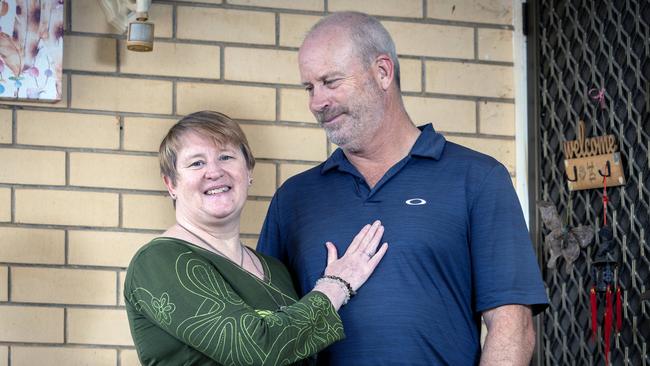
It helped him come to terms with changes in his wife’s behaviour and their level of intimacy.
“It’s just understanding that she’s not hating me, she’s not not loving me, it’s just what her body’s going through,” says Steve Darch, who went with his wife to her appointment with an endocrinologist to find ways to manage her fluctuating hormones. “It’s not something that’s in Paula’s control. It’s a health issue. You’re not going to leave your partner because they get diagnosed with cancer. My job is to support Paula and love her.”
His wife – a trauma and grief therapist, psychic medium and reiki master who helps her clients “work through their emotions” – had a hysterectomy at 33 but kept her ovaries, only to have them out 10 years later. She says menopause’s sudden impact on her life has been the biggest symptom for her. “We talk about hot flushes and mood swings but there’s 140 symptoms of menopause,” she says. “And the biggest of all of them is to do with relationships.”
Adelaide divorce lawyer Rose Cocchiaro says menopause symptoms – and a lack of understanding of them – can cause carnage in relationships that “weren’t necessarily in trouble”.
“The majority of separations happen to people that are in their 40s and 50s, and that is the prime time that perimenopause and menopause occurs,” says Cocchiaro, co-founder of Resolve Divorce family law clinic in North Adelaide who has endured her own symptoms of perimenopause, including brain fog, fatigue, irritability and lactose intolerance.
Cocchiaro – who has improved “tenfold” since starting hormone replacement therapy – says she doesn’t ask her clients directly about perimenopause and menopause and their impact on relationships. But she says perimenopause, in particular, can wreak havoc on women who may not have realised that they are going through hormonal changes.
Clinical psychologist Dr Emma Johnston sees the chaos that “the change” can unleash in women’s lives every day at her busy practice, ThinkWise, in Cumberland Park. She says one woman’s symptoms of inexplicable rage were so intense, she wanted to scream at her husband just for crunching on an apple.
These hormone-induced, irrational outbursts were often followed by feelings of guilt and responsibility by women “who are the consummate experts in self-blame”.
“We recognise that the emotional reaction seems to be extreme in relation to the situation that triggered it, however, this self-blame does little to help us and can make us feel even worse.
“We need to show self compassion and understanding in recognising the role of hormonal fluctuations on mood,” says Johnston, who has struggled with her own emotional upset from perimenopause. “Workplaces all need to become more aware of understanding women in the context of possible perimenopause if performance issues start to arise.”
As a successful career woman, Perry is mystified that something so life-crushingly monumental – destined to affect more than half the world’s population – could have blindsided her and flummoxed the medical profession.
“I think for me it was compounded by the fact that eight years ago no one was talking about perimenopause,” she says.
“If anyone talked about menopause it was like embarrassing, shameful, women felt old and washed-up.
“But if I had someone work it out earlier and I had started taking HRT, I never would have gone through what I went through.” ■






